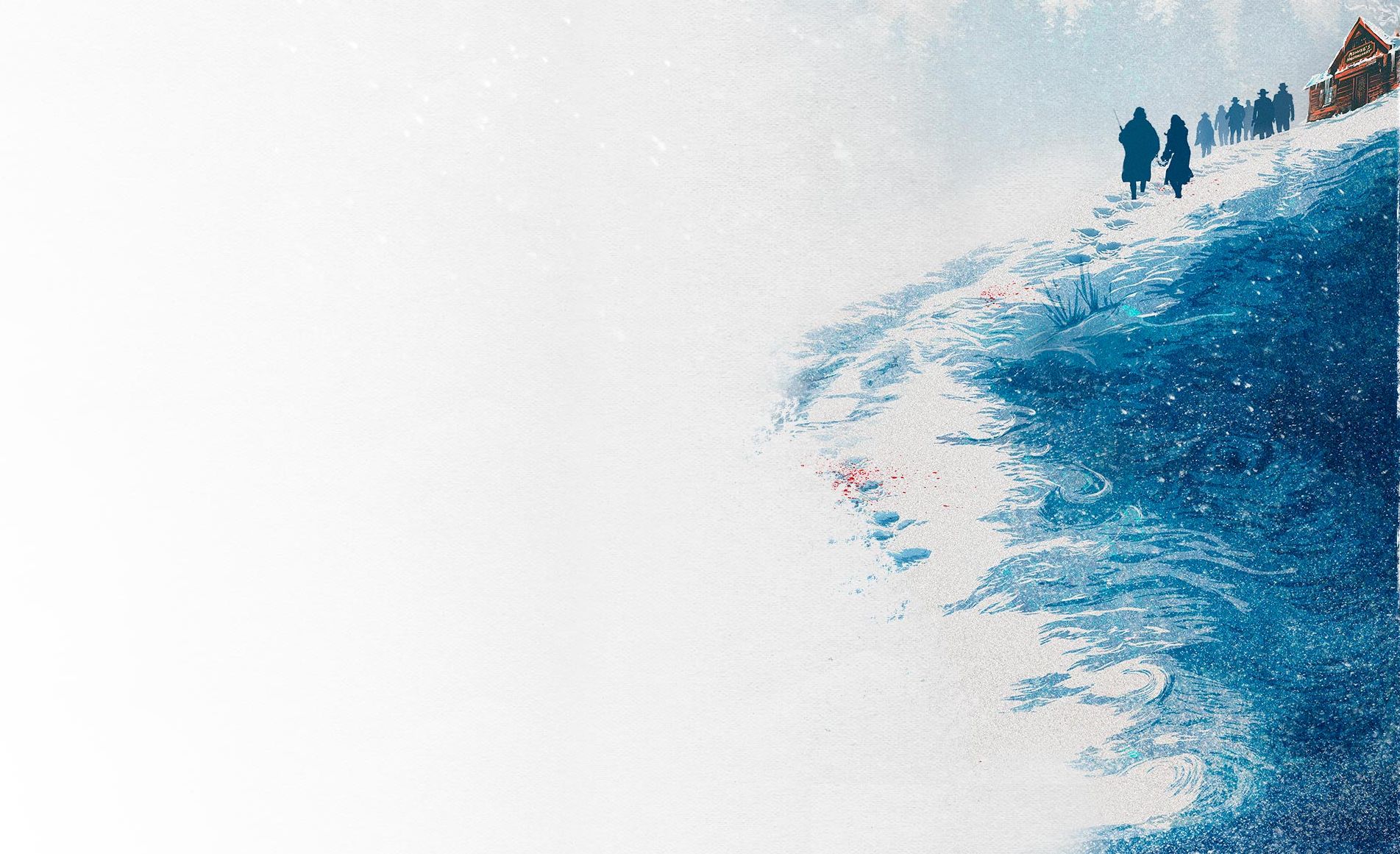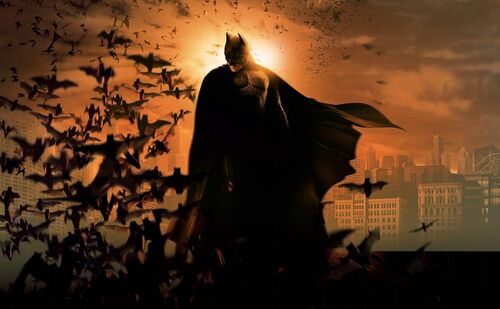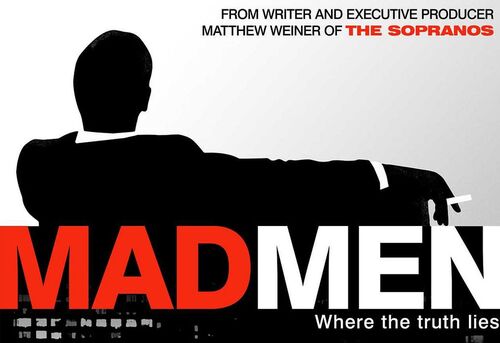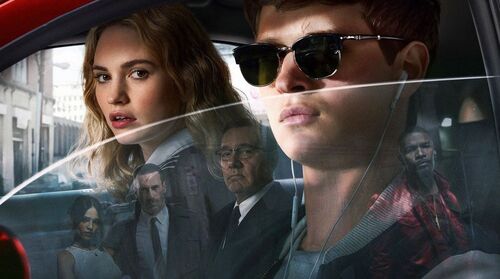
The Hateful Eight (2015) Film Review
 Quentin Tarantino's eighth film reshapes itself from a talky western into a classic whodunit around two thirds of the way in. The problem is that it slots its way into the latter category a little late, though it manages to do so without disrupting proceedings.
Quentin Tarantino's eighth film reshapes itself from a talky western into a classic whodunit around two thirds of the way in. The problem is that it slots its way into the latter category a little late, though it manages to do so without disrupting proceedings.
Tarantino brings plenty of flavour to his second western, a genre he's showing a personal intent in re-implementing into modern culture, it would seem. And on the surface, the seasoned director seems almost bored of the filmmaking formula, leading to his choices regarding the film's production and structure.
Forever a lover of old cinema, the 'revival' of the Roadshow is less that than a once off, an event that will solely be treated as an event; don't expect it to become common play. Complete with overture, intermission, and a program upon entry, the presentation of the film from entry to the moment the stock begins rolling is an experience in and of itself. That the director chose to break his story into chapters goes to show that he may have grown tired of the confines of film (at least of recent).
That eagerness to experiment can also explain the film's patience, though Tarantino is well known for taking his time. His love for his characters never wavers, and he allows them each the proper time on screen to forge their own, proper presence in the narrative. The Hateful Eight though borders on self-indulgence, taking an eternity to get to that cabin in the blizzard, and taking even longer to kick the motor into gear.
Could he be considered the modern master of dialogue? It's quite likely, because this is the single draw of that opening act and a bit, a chunk of time committed to letting the characters talk their way into our minds. Reactions to his use of a few select words and a few certain traits that are all arguably politically incorrect will divide fans, as they always have. What it does, without displaying any particular bias, is establish a world view shared by all of the characters involved, enriching the environment and social representation on show.
Beginning with a horse-drawn carriage brought to a halt thanks to bounty hunter Major Marquis Warren (Samuel L. Jackson), the film brings each of its hateful eight together in various sequences, before holing all of them up in a claustrophobic cabin in the midst of tumultuous whether. Such is the way the film is shot, stylised so that not a single prop exists without reason, nor a single frame wasted, that, despite the mystery developing quite late, it appears naturally. Instead of wondering why it took so long to arrive, it's more a case of 'why didn't we see it coming?' All of a sudden, we start to ponder about things that took place early on. Immediately after the intermission, a narrator (who I'm sure is Tarantino himself) reminds us of what we've just seen (like we needed it) and then throws a spanner into proceedings, all of a sudden completely changing the direction of the story with such simplicity.
Daisy Domergue, played by Jennifer Jason Leigh in a bruising performance, deserves our attention from beginning to end, and even more-so after said intermission. On the most base level the backlash to her character's mistreatment can be justified. But Leigh portrays a strong, questionable woman who doesn't deserve our sympathy entirely, but isn't nearly as weak as supporters might demand she is simply due to the fact that she's on the end of some of the films nastier, more personal violence. These moments, in honesty, are probably when the film struggles the most to balance violence with its comedy, though for the most part Tarantino brings his greatest comedic flare to his latest film. Repetition and blatant criticism are used to humorous effect, though it is notable that these moments feel far more natural and far less forced than those in which the gags fall short.
Kurt Russell as The Hangman is the loudest voice in the room, a smart man who lives by dumb rules and who can be stubborn to an absolute fault. His existence in the story is possibly the largest felt, but it also asks a certain question; who is the leading protagonist of this film? Now, by no means does there absolutely have to be one, but by the film's climactic act the story loses any emotional thread (if it ever had one), or any real purposeful lead who we're inclined to support. Sheriff Chris Manix (Walton Goggins) is a glorified comic relief character with development that feels a little abrupt, and yet Marquis Warren never feels justified as the lead.
Better handled is the film's antagonistic element, essentially stemming from the idea that nobody can be trusted. The reveals in the latter part of the movie are handled supremely well, avoiding the potential these things have for coming straight out of left field. Tarantino maps out his narrative with poise in this regard, and incredibly manages to create a near three-hour movie, within one consistent setting, and avoids it ever becoming tiresome. Of course, we meet his stylised and well practiced habit of overt blood and gore as the film enters its final face-off, and this too is hit and miss. Gratuitous, yes, but if you're going into a Tarantino film blind then that's probably on you. And when is a man's face literally being blasted off by two pistols not hilarious?
Taking full advantage of the equipment, the sweeping landscapes of the cold, wintry mountains are gorgeous in the panoramic presentation, and the cameras are utilised to leave nothing unexplored within the confines of the cabin. The camera tells the story as visually as the characters tell it verbally, using focal range and lighting to create mystery and mood, respectively. Silhouettes in the entryway of the barn against the near white of the rolling hills is a frame that was gratefully immortalised in a photograph in the program itself, while a particularly memorable sequence has Domergue peering over her own shoulder various times, forcing the characters in the background in and out of focus at the filmmakers' will.
Of the story, maybe there's little here to say. It takes a long time for any of it to really mean anything. The Hangman aims to deliver a criminal to the sheriff in order to acquire the $10,000 bounty on her head. When the elements get in the way, all of the characters are brought together for a stretch of time while they wait out the blizzard. Dramatic tension is certainly not lost as the distrust in their fellow cabin-mates is made extremely clear. There's never a wasted conversation, remarkable in a film so devoted to talking rather than doing.
Mystery and intrigue are plentiful in the latest Tarantino flick. The bloodbath is lesser but no less a talking point, as always, and the dialogue-heavy film is justified by its bouncy word smarts and curious character dynamics. There's plenty to see with so little actually to utilise visually, and if any film has earned itself a stage adaptation it's this one. It'd make a perfect fit, though that certainly doesn't mean it's no fit for the big screen. Whether his ten-film limit represents a boredom in the medium or not, Tarantino knows how to flex his muscles in most of the right ways.


